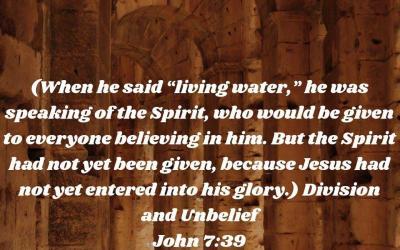Passage: Matthew 14:1-13
Introduction
John the Baptist was a fearless prophet who prepared the way for Jesus. His tragic death at the hands of Herod teaches us valuable lessons about morality, boldness, the consequences of sin, and God’s sovereignty. Through this passage, we see the stark contrast between righteousness and corruption.
Background & Context
John the Baptist had publicly rebuked Herod Antipas for taking his brother Philip’s wife, Herodias, as his own (Matthew 14:3-4). This angered Herodias, leading to John’s imprisonment. During Herod’s birthday feast, Herodias’ daughter danced before him, pleasing him. In a rash promise, he vowed to grant her whatever she asked. Influenced by her mother, she requested John’s head on a platter. Though Herod was distressed, he complied due to his fear of losing face before his guests.
Key Lessons
1. Herod’s Immorality & His Intention to Harm
“For Herod had seized John and bound him and put him in prison because of Herodias, the wife of his brother Philip.” (Matthew 14:3)
Herod knew John was a righteous man but still chose to imprison him. Sin blinds people to truth and leads them into deeper wickedness.
💡 Illustration: A man who starts with a small lie eventually finds himself caught in a web of deception.
2. Herod the People-Pleaser—Fear of Man Over Fear of God
“Although Herod wanted to put him to death, he feared the crowd, because they regarded John as a prophet.” (Matthew 14:5)
Herod was more concerned about people’s opinions than doing what was right. Fear of man often leads to compromise and sin.
💡 Illustration: A student who knows cheating is wrong but does it anyway to impress friends.
3. John’s Boldness—Standing for Truth No Matter the Cost
“John had been saying to him, ‘It is not lawful for you to have her.'” (Matthew 14:4)
John was not afraid to speak truth to power. Faithfulness to God requires courage, even when it costs us.
💡 Illustration: A whistleblower who speaks against corruption despite threats.
4. Herodias—How Sin Can Drive a Person to Evil
“Prompted by her mother, she said, ‘Give me the head of John the Baptist here on a platter.’” (Matthew 14:8)
Herodias’ grudge against John led to murder. Sin, when left unchecked, hardens the heart.
💡 Illustration: A person harboring bitterness eventually seeks revenge, destroying themselves and others.
5. Herod’s Careless Words & Their Consequences
“And although he was grieved, the king commanded it to be given because of his oaths and his dinner guests.” (Matthew 14:9)
Herod’s reckless promise led to an irreversible tragedy. Words have power, and rash commitments can lead to destruction.
💡 Illustration: A businessman hastily signs a bad deal out of pride and later regrets it.
6. God’s Sovereignty in John’s Death
Though John was executed, his ministry was not in vain. God’s plan was unfolding, and John had fulfilled his purpose in preparing the way for Christ. Death is not the end for those who are faithful to God.
💡 Illustration: A missionary who dies for the gospel, but his work continues to bear fruit.
7. Jesus Departing—A Lesson in Seeking Solitude
“Now when Jesus heard about John, He withdrew from there in a boat to a secluded place by Himself.” (Matthew 14:13)
Jesus took time to grieve and pray. In difficult times, we should seek God’s presence for comfort and strength.
💡 Illustration: A person overwhelmed with grief finds peace through prayer and solitude.
Practical Application
- Stand for truth even when it is unpopular.
- Fear God, not man—don’t compromise righteousness for approval.
- Guard your heart against sin’s progression.
- Be mindful of your words—they have lasting consequences.
- Trust God’s sovereignty, even in difficult situations.
- Take time to seek God in moments of grief and hardship.
Conclusion
The death of John the Baptist serves as a sobering reminder of the cost of truth and righteousness. Yet, his faithfulness to God was not in vain. We, too, must stand firm in our faith, trust in God’s plan, and seek His presence in all circumstances.





0 Comments